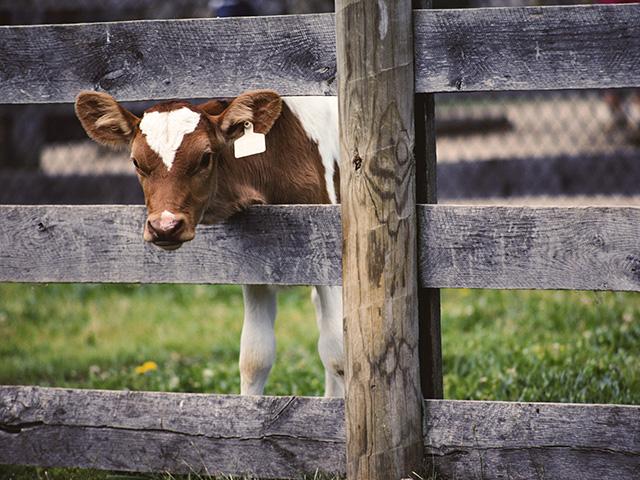Livestock Producers in a Fight
California Law Would Control Production Methods Outside the State
California's Proposition 12 is under fire from at least 20 states, as the Supreme Court of the United States (SCOTUS) has been asked to review whether the California law is constitutional.
Proposition 12 would require that meat products from veal calves and breeding pigs raised outside of the state that are not raised in a way that meets California animal-welfare standards could not cross state lines and be sold there. This could force businesses and farmers who wish to be allowed into that market to be forced to restructure facilities and reengineer management protocol to meet one state's demands.
In past cases, some as recent as 2019, SCOTUS has held such requirements as outside of the requirements of the Dormant Commerce Clause and thus unconstitutional.
In that 2019 case, Tenn. Wine & Spirits Retailers Ass'n v Thomas, SCOTUS held the Commerce Clause restricts state protectionism, is deeply rooted in case law, and removing state trade barriers was a principal reason the Constitution was adopted. As a result, state statutes that are clearly discriminatory against interstate commerce (goods coming from outside of that state) are typically struck down unless the state can show there is a valid reason, aside from protectionism, for the law.
North American Meat Institute President and CEO Julie Anna Potts, in challenging the constitutionality of Proposition 12, noted, "If California is allowed to apply its laws to conduct in other states, a single state will dictate policies in all others, encouraging a patchwork of regulations and threatening the free flow of interstate commerce."
P[L1] D[0x0] M[300x250] OOP[F] ADUNIT[] T[]
Twenty states filed an "amicus curiae" brief, which means "friend of the court." This brief is a way of furnishing the court with information or advice on a particular issue. In this case, that issue would be the impact of Proposition 12 on states outside of California, and businesses therein.
Those states that signed onto the brief included: Alabama, Alaska, Arkansas, Georgia, Indiana, Iowa, Kansas, Louisiana, Missouri, Montana, Nebraska, North Dakota, Ohio, Oklahoma, South Carolina, South Dakota, Texas, Utah, West Virginia and Wyoming.
In part, the brief read: "It (Prop 12) freely permits California to impose regulations directly on out-of-state commercial conduct and thereby fosters inconsistent state regulatory obligations and enables tit-for-tat state regulatory conflict. The ultimate result may be transformation of America's current integrated national market into a patchwork of regulatory regions."
In February 2021, the Meat Institute asked SCOTUS to review the ruling by the U.S. Court of Appeals for the Ninth Circuit that held California's law extending Proposition 12 to states outside its borders to be constitutional.
This is not the first time California has enacted a law and
expected the rest of the country to follow it. In 2010, the state's legislature extended Proposition 2, which established confinement requirements for egg-laying hens, to out-of-state producers. The state did this by banning the sale of eggs from hens not confined in compliance with their law.
California did this under a purpose of protecting its consumers from foodborne pathogens. In this case, states also challenged the ban under the Commerce Clause. That challenge was dismissed, with SCOTUS denying review.
For more details on the Ninth Circuit Court's ruling on Proposition 12, see "Commerce Clause on Center State" by DTN Staff Reporter Todd Neeley here: https://www.dtnpf.com/…
Victoria Myers can be reached at vicki.myers@dtn.com
Follow her on Twitter @myersPF
(c) Copyright 2021 DTN, LLC. All rights reserved.






